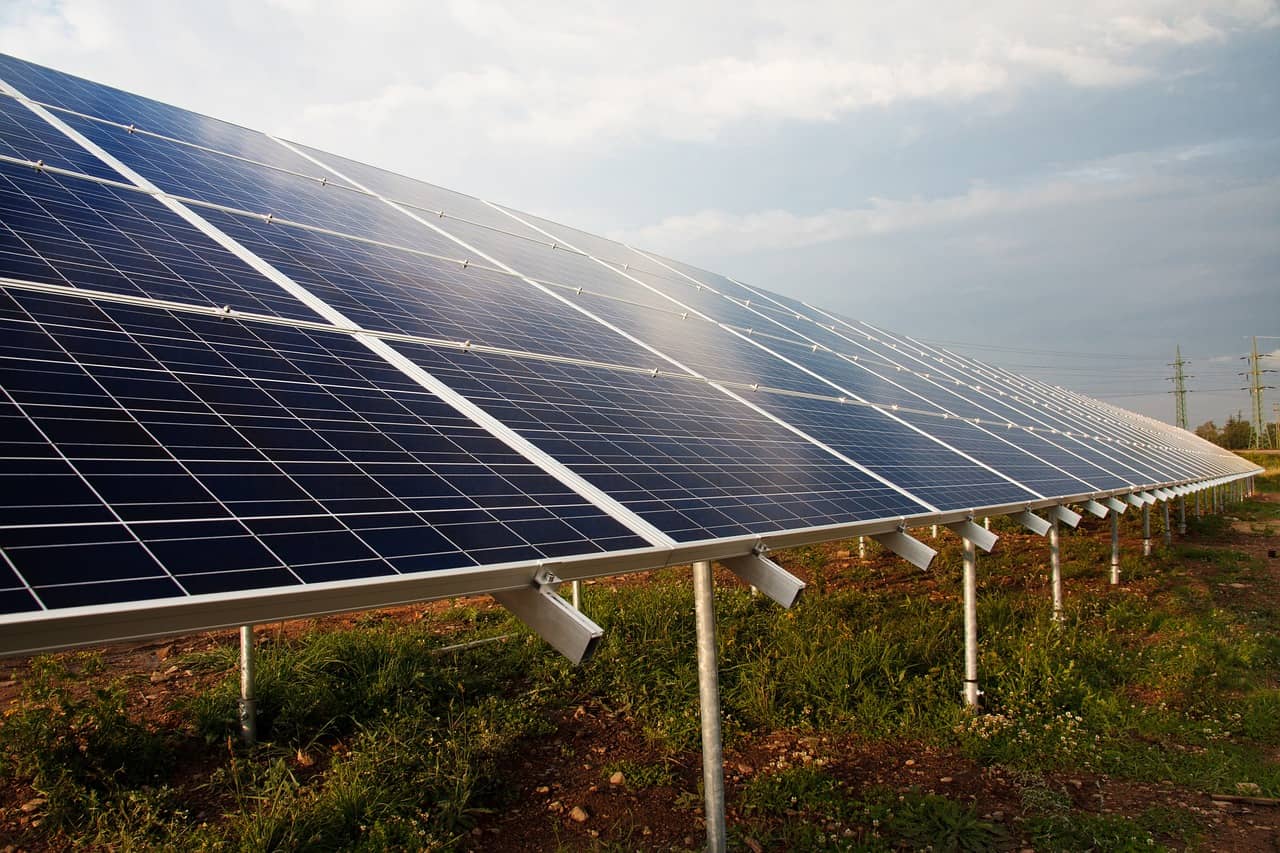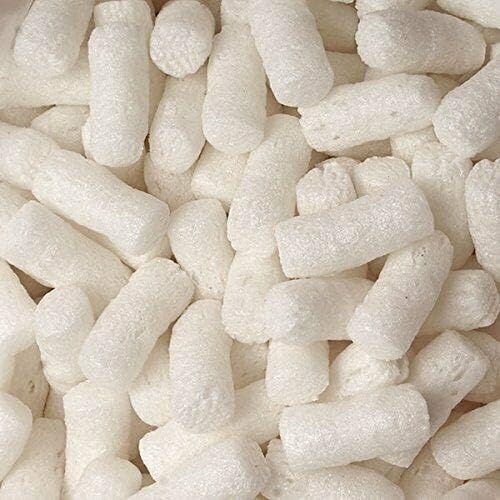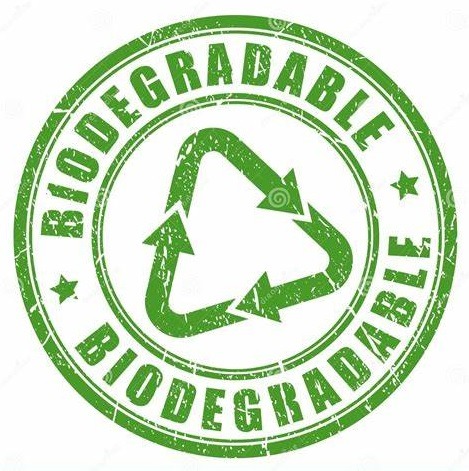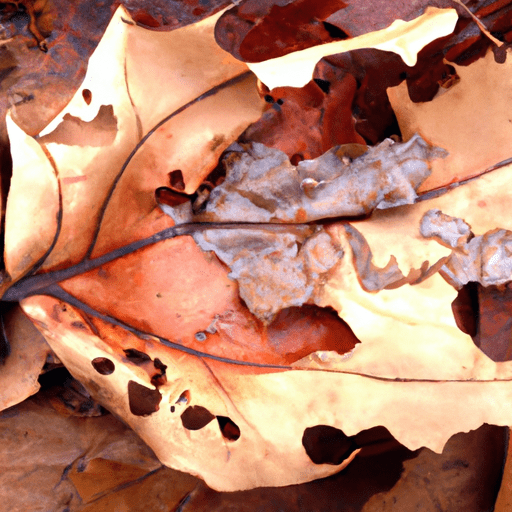Where to Buy Biodegradable Packing Peanuts?
Looking for eco-friendly biodegradable packing peanuts? Find out where to buy them, how to dispose of them, and more in this informative article!
Looking for a way to protect your fragile items during shipping while also being environmentally conscious? Look no further! In this article, we will explore where you can buy biodegradable packing peanuts, the materials they are made of, and how to properly dispose of them. We’ll also answer some frequently asked questions, such as whether they can be composted, if they’re safe for dogs, and who invented these innovative peanuts. So, let’s dive right in and discover the world of biodegradable packing peanuts together!

This image is property of pixabay.com.
Where to Buy Biodegradable Packing Peanuts?
Physical Stores
When it comes to buying biodegradable packing peanuts, you have several options to consider. One of the easiest ways to find them is by visiting physical stores that offer packing and shipping supplies. Many large retailers, such as office supply stores or home improvement stores, often have a packaging section where you can find biodegradable packing peanuts. Simply check the packaging aisle for environmentally-friendly options.
Online Retailers
If you prefer the convenience of online shopping, there are numerous online retailers that specialize in eco-friendly products. Websites like Amazon, eBay, and Walmart offer a range of biodegradable packing peanuts for purchase. By using the search filters, you can easily find the type and quantity you need, and have them delivered right to your doorstep.
Specialty Packaging Suppliers
For a wider selection and more specific options, you may want to consider visiting specialty packaging suppliers. These suppliers often carry a variety of different packing materials, including biodegradable packing peanuts. They may also offer alternative eco-friendly options that you might not find in regular stores. Look for suppliers that focus on sustainable packaging solutions.
Local Eco-Friendly Stores
Many cities and towns now have specialized eco-friendly stores that promote sustainable living. These stores typically offer a range of products that are environmentally friendly, including biodegradable packing peanuts. They may also have knowledgeable staff who can assist you in finding the right type of packing peanuts for your needs. Consider checking online directories for eco-friendly stores in your area.
Packing Supply Companies
Packing supply companies are another great option for finding biodegradable packing peanuts. These companies are dedicated to providing all types of packing materials for businesses and individuals alike. They often have a wide selection of environmentally-friendly options and can help you find the right solution for your packing needs. Contact local packing supply companies in your area to inquire about their selection of biodegradable packing peanuts.
Wholesale Packaging Suppliers
If you require a large quantity of biodegradable packing peanuts, wholesale packaging suppliers may be the best choice. Many of these suppliers sell their products in bulk, which can be cost-effective for businesses or individuals who frequently use packing materials. By purchasing in bulk, you not only save money, but also reduce packaging waste. Contact wholesale packaging suppliers to inquire about their biodegradable packing peanut options.
Auction Websites
Auction websites such as eBay can be a great resource for finding biodegradable packing peanuts at a discounted price. Many sellers offer surplus or unused packing peanuts, providing an opportunity to purchase them at a lower cost. However, it is important to thoroughly read the product description and verify that the packing peanuts are indeed biodegradable before making a purchase.
Classified Ads
Checking local classified ads, both online and in print, can also be a way to find biodegradable packing peanuts. Individuals or businesses may advertise their surplus or unwanted packing materials, including biodegradable packing peanuts. Be sure to ask questions about the product’s condition, quantity, and biodegradability before making a purchase.
Social Media Marketplace
Utilizing social media marketplaces, such as Facebook Marketplace or local buy/sell groups, can be an effective way to find biodegradable packing peanuts. Many individuals use these platforms to sell a variety of items, including packing materials. By searching for keywords like “biodegradable packing peanuts” or “eco-friendly packing supplies,” you may find local sellers who have the product you need.
Directly from Manufacturers
For those who prefer to buy directly from the source, contacting manufacturers of biodegradable packing peanuts is an option worth considering. Some manufacturers offer direct sales to customers, either through their websites or over the phone. This allows you to ensure the product’s authenticity and potentially receive bulk discounts. Research biodegradable packing peanut manufacturers and reach out to inquire about purchasing options.
How to Dispose of Biodegradable Packing Peanuts?
Composting
One of the most environmentally friendly ways to dispose of biodegradable packing peanuts is through composting. Packing peanuts made from natural ingredients, such as starch-based materials, can break down in compost piles or bins. To compost biodegradable packing peanuts, ensure your composting system meets the necessary conditions for decomposition. This includes maintaining proper moisture levels, aeration, and temperature. Over time, the packing peanuts will break down, adding organic matter to your compost and enriching the soil.
Disposing in Regular Trash
If composting is not a viable option for you, another method of disposal is simply throwing the biodegradable packing peanuts in the regular trash. However, it is important to note that these packing peanuts will not break down in a landfill environment. Therefore, this should be considered a last resort option. To minimize the environmental impact, try to use the peanuts in a way that maximizes their usefulness before disposing of them in the regular trash.
Recycling Facilities
Some recycling facilities accept biodegradable packing peanuts for recycling. Check with your local recycling center to see if they have a specific drop-off location for these materials. It is important to note that not all recycling facilities accept biodegradable materials, so be sure to inquire about their specific policies. Recycling the packing peanuts ensures they are properly managed and repurposed, reducing waste and conserving resources.
Using as Mulch
If you are a gardener, consider using biodegradable packing peanuts as a type of mulch. The porous nature of the peanuts allows water and air to flow through, while also providing insulation and weed suppression. Simply spread a layer of packing peanuts around your plants, being careful not to bury the stems. As the peanuts break down, they will release nutrients into the soil and contribute to the overall health of your plants.
Donating to Local Packing Supply Stores
Another way to dispose of biodegradable packing peanuts is by donating them to local packing supply stores. These stores often accept donations of gently used packing materials, including packing peanuts. By donating these peanuts, you can help reduce waste and support businesses in your community. Contact local packing supply stores to inquire about their donation policies and if they accept biodegradable packing peanuts.
Creative Reuse
Biodegradable packing peanuts can also be creatively repurposed for various projects. They can be used for crafts, such as filling decorative jars or cushions for toys. Additionally, they can serve as protective padding for fragile items during storage or transportation. By finding creative reuse opportunities for biodegradable packing peanuts, you can extend their lifespan and reduce waste.
Can Biodegradable Packing Peanuts Go Down the Drain?
Not Recommended
While biodegradable packing peanuts are designed to break down in certain conditions, they are not meant to be flushed or intentionally sent down the drain. The packing peanuts can quickly absorb water and expand, potentially causing clogs in your plumbing system. It is important to dispose of the packing peanuts responsibly to avoid any negative impacts on your plumbing or the larger water system.
Implications for Plumbing
Sending biodegradable packing peanuts down the drain can have serious implications for your plumbing system. Once they absorb water, they can expand and create blockages in pipes, leading to plumbing issues and potentially costly repairs. Additionally, the expansion of the peanuts can put pressure on the pipes, increasing the risk of leaks or bursts. To avoid these problems, it is best to dispose of the packing peanuts through proper channels, such as composting or recycling.
Impacts on Water Systems
Flushing biodegradable packing peanuts down the drain can also have larger implications for water systems. If these peanuts reach wastewater treatment plants, they can clog filters and hinder the treatment process. This can lead to operational issues and increased costs for the treatment facilities. Furthermore, if the packing peanuts make their way into natural water bodies, they can cause harm to aquatic ecosystems and wildlife. It is crucial to dispose of biodegradable packing peanuts responsibly to prevent these negative impacts on water systems.
Are Biodegradable Packing Peanuts Safe to Eat?
Not Edible
No, biodegradable packing peanuts are not safe to eat. Although they may look similar to certain food products, such as cheese puffs or popcorn, they are not intended for consumption. Biodegradable packing peanuts are made from different types of starch-based materials and other natural ingredients, but they are not produced or treated in a way that makes them suitable for human consumption. It is important to keep them away from food and to educate children about their non-edible nature.
Health Risks
If ingested, biodegradable packing peanuts can pose potential health risks. The manufacturing process may involve the use of additives or processing chemicals that could be harmful if consumed. Additionally, the peanuts may have absorbed moisture or other substances during their use, making them unsanitary. Ingesting biodegradable packing peanuts can lead to choking hazards, digestive issues, or allergic reactions. It is essential to treat biodegradable packing peanuts as non-food items and to keep them out of reach of children and pets.
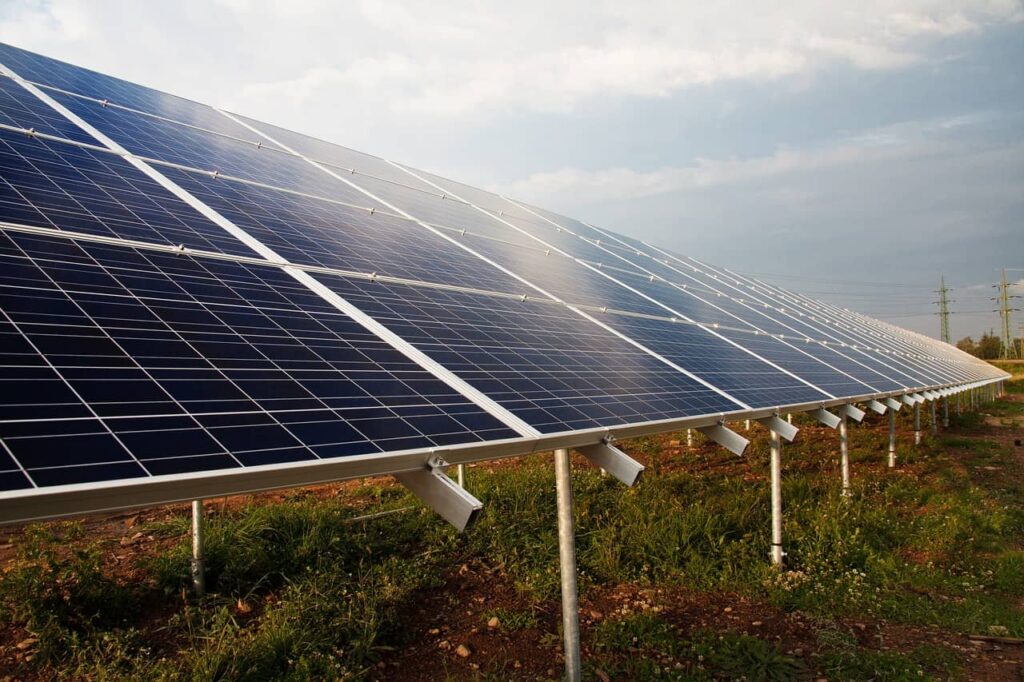
This image is property of pixabay.com.
Can Biodegradable Packing Peanuts Be Composted?
Compostable Properties
Yes, biodegradable packing peanuts can be composted under the right conditions. The compostability of these packing peanuts depends on the materials used in their production. Many biodegradable packing peanuts are made from starch-based materials, such as cornstarch, wheat starch, or potato starch, which can break down in a composting environment. These materials are organic and can contribute to the nutrient content of the compost.
Process and Conditions
To compost biodegradable packing peanuts, it is important to create the right conditions for decomposition. Firstly, ensure that your compost pile or bin has a balanced mixture of organic materials, including packing peanuts, green waste, and brown waste. The biodegradable packing peanuts should be spread evenly throughout the compost pile to ensure proper decomposition.
Maintain the appropriate moisture levels by periodically watering the compost pile. The packing peanuts should be moist, but not overly wet. Proper aeration is also crucial to facilitate the breakdown of the packing peanuts. Turn or mix the compost pile regularly to provide oxygen and redistribute materials.
Lastly, temperature plays a role in the composting process. Depending on the specific materials used in the packing peanuts, they may require higher temperatures to break down effectively. Monitor the temperature of your compost pile and aim for a range between 120°F and 160°F (49°C and 71°C) to promote decomposition.
With time, the biodegradable packing peanuts will break down into organic matter, contributing to the overall health of your compost. Use the compost in your garden beds or containers to enrich the soil and promote plant growth.
What Are Biodegradable Peanuts Made Of?
Starch-based
The majority of biodegradable packing peanuts are made from starch-based materials. Common sources of starch include corn, wheat, and potatoes. Starch-based packing peanuts are designed to break down easily in composting or other suitable environments, minimizing their environmental impact.
Cornstarch
Cornstarch is a popular ingredient in biodegradable packing peanuts. It is derived from corn and is a readily available and renewable resource. Cornstarch-based packing peanuts can be composted, making them an eco-friendly option for packaging.
Wheat Starch
Wheat starch is another common material used in the production of biodegradable packing peanuts. It is derived from wheat and possesses similar properties to cornstarch. Wheat starch-based packing peanuts can break down in composting conditions, contributing to the organic matter of the compost.
Potato Starch
Potato starch is also utilized in the production of biodegradable packing peanuts. Like cornstarch and wheat starch, potato starch is a natural and renewable resource. Packing peanuts made from potato starch can be composted, providing an eco-friendly alternative to traditional packing materials.
Other Natural Ingredients
In addition to starch-based materials, biodegradable packing peanuts may incorporate other natural ingredients. These can include additives or processing agents to enhance the material’s properties. It is important to check the specific composition of the packing peanuts to ensure they meet your desired environmental criteria.

This image is property of pixabay.com.
Are Biodegradable Packing Peanuts Toxic to Dogs?
Potential Health Risks
While biodegradable packing peanuts are generally considered safe, they can pose potential health risks to dogs if ingested. Dogs may be attracted to the texture and appearance of the packing peanuts, leading them to chew or swallow them. If a dog consumes a significant amount of packing peanuts, it can result in gastrointestinal issues such as blockages or obstructions. These conditions can be serious and require immediate veterinary attention.
Proper Disposal and Pet Safety
To prevent potential health risks to dogs, it is essential to properly dispose of biodegradable packing peanuts and keep them out of reach. Store them in a secure location where pets cannot access them. When unpacking items that are filled with packing peanuts, do so in an area where your dog does not have access. Use alternative packaging materials or find creative reuse options for the packing peanuts to minimize any potential risks to your pets.
Are All Packing Peanuts Biodegradable?
Differences Between Materials
No, not all packing peanuts are biodegradable. Traditional packing peanuts are often made from expanded polystyrene (EPS) or other non-biodegradable materials. These non-biodegradable packing peanuts do not break down naturally and can contribute to environmental waste.
Biodegradable packing peanuts, on the other hand, are specifically designed to break down in certain conditions. They are made from natural, renewable materials that decompose over time, reducing their impact on the environment.
Common Non-Biodegradable Materials
Non-biodegradable packing peanuts are typically made from materials like expanded polystyrene (EPS) or polyethylene foam. These materials are not easily broken down by natural processes and can persist in the environment for hundreds of years. It is important to be aware of the differences between biodegradable and non-biodegradable packing peanuts when making packaging choices to minimize waste and promote sustainability.
Who Invented Biodegradable Packing Peanuts?
Walter E. Morgan
Biodegradable packing peanuts were invented by a chemist named Walter E. Morgan in the mid-20th century. Morgan developed the concept for these packing peanuts as a response to the environmental concerns associated with non-biodegradable packing materials. His invention revolutionized the packaging industry by introducing a more sustainable alternative to traditional packing peanuts.
Biodegradable Packing Peanuts in History
Early Development
The first biodegradable packing peanuts were introduced in the 1960s, following Walter E. Morgan’s invention. During this time, there was growing concern about the environmental impact of non-biodegradable packing materials, such as expanded polystyrene. Biodegradable packing peanuts offered a solution that reduced waste and provided a more sustainable option for packaging and shipping.
Advancements
Over the decades, advancements have been made in the production and effectiveness of biodegradable packing peanuts. Manufacturers have refined the materials used and developed improved manufacturing processes to enhance the peanuts’ biodegradability and performance. These advancements have led to the widespread adoption of biodegradable packing peanuts as an environmentally friendly packaging option.
Current Usage and Alternatives
Today, biodegradable packing peanuts are commonly used in various industries, including e-commerce, shipping, and packaging. They provide cushioning and protection for fragile items during transportation while minimizing the environmental impact. However, alternative packaging options, such as paper-based or air-filled packaging materials, have gained popularity in recent years. These alternatives offer similar protection while further reducing waste and promoting sustainability.
In conclusion, there are multiple options available for purchasing biodegradable packing peanuts, including physical stores, online retailers, specialty packaging suppliers, local eco-friendly stores, packing supply companies, wholesale packaging suppliers, auction websites, classified ads, and directly from manufacturers. Dispose of biodegradable packing peanuts through composting, disposing in regular trash, recycling facilities, using as mulch, donating to local packing supply stores, or finding creative reuse options. Avoid flushing them down the drain due to potential plumbing issues and impacts on water systems. Biodegradable packing peanuts are not safe to eat and can pose health risks. They can, however, be composted under the proper conditions. These peanuts are primarily made from starch-based materials such as cornstarch, wheat starch, or potato starch. While they are generally safe, biodegradable packing peanuts can pose potential health risks to dogs if ingested. Not all packing peanuts are biodegradable, with traditional options made from non-biodegradable materials such as expanded polystyrene. Biodegradable packing peanuts were invented by chemist Walter E. Morgan in the mid-20th century and have since seen advancements in production and usage.
